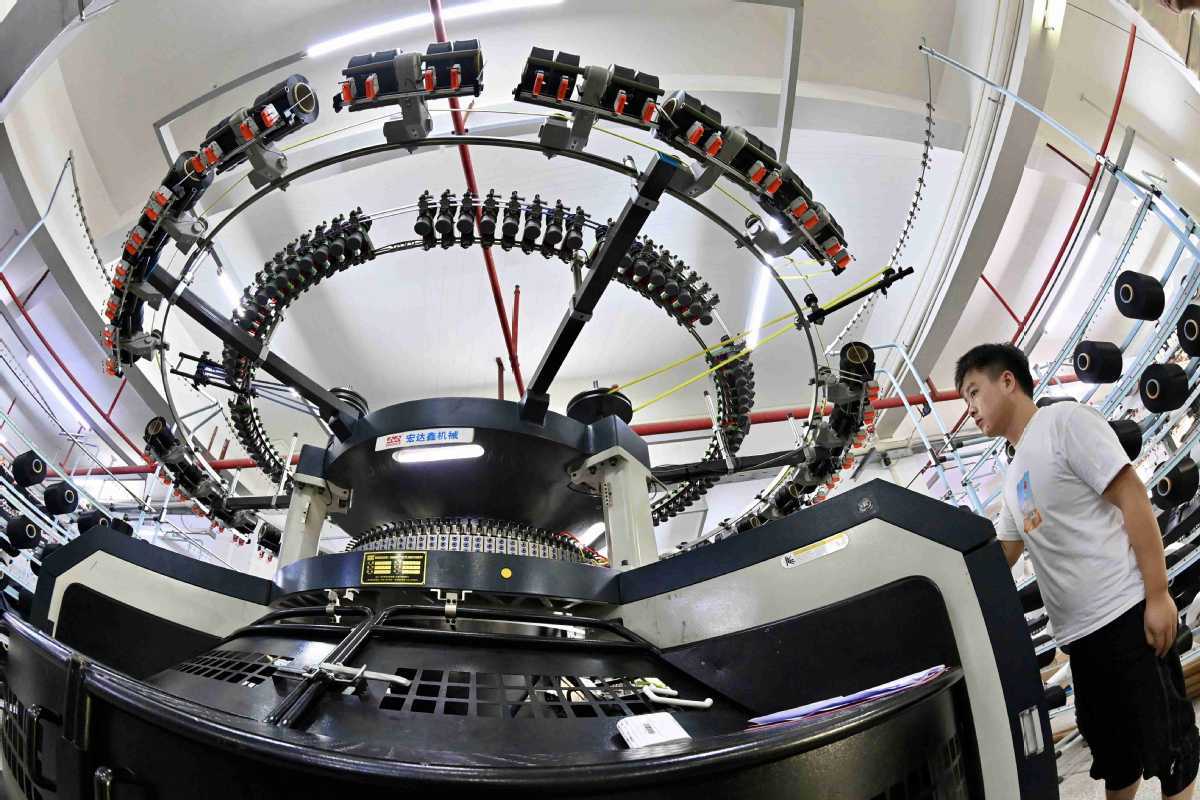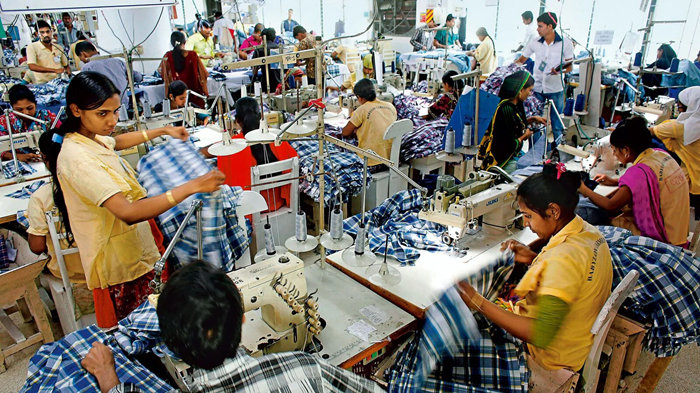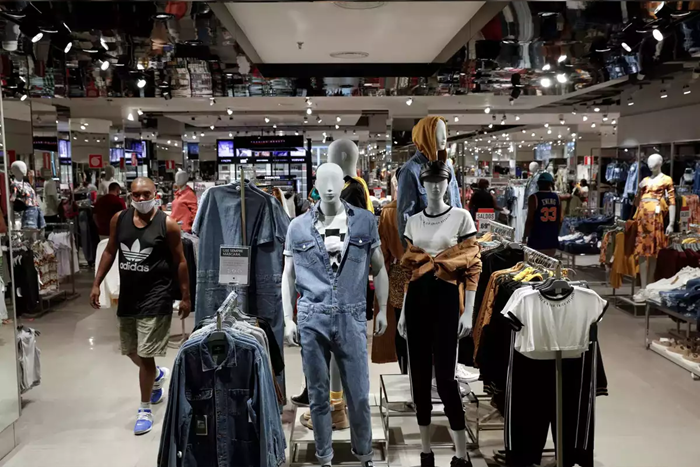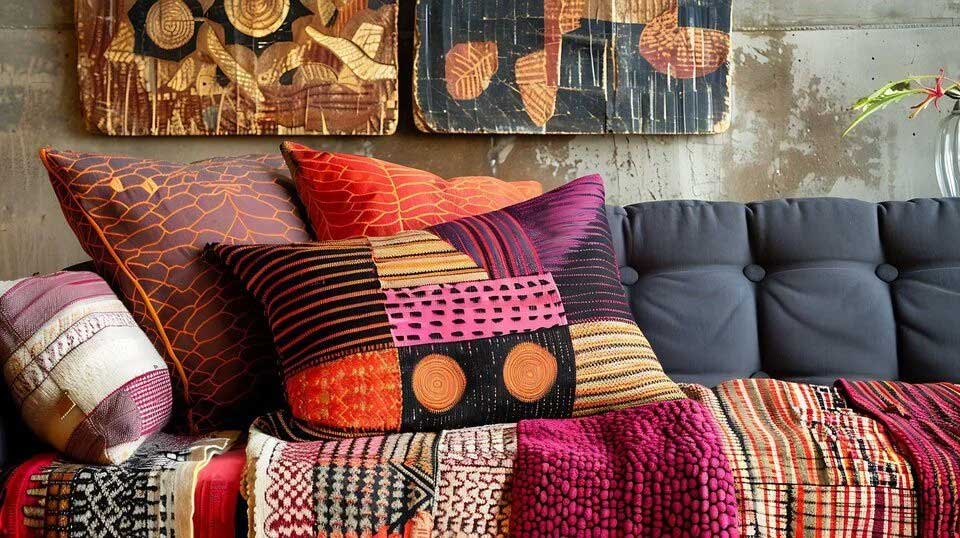FW
UK’s Leicestershire is all set to become a major textile manufacturing centre all over again. A recent estimate reveals the county still accounts for about a fifth of all clothing made in the UK and three-quarters of UK business leaders associate the trade with the area. Leicestershire’s textile sector was decimated during the 1990s as major retailers, such as Marks & Spencer, moved production to India, North Africa, China and other Far Eastern countries to cut costs. Another report by market researchers tasked with assessing the vibrancy of the UK textile industry says Leicestershire is in a prime position to meet the expected rise in demand.
The report, by Cast Intelligence, of Nottingham, says the county still has more than 800 textile firms who produce £500 million worth of goods each year. The report concludes, “This data suggests that the knitwear industry in Leicestershire is still vibrant.” However, in order to fully take advantage, firms are having to invest in new machinery and new staff.
Mandip Rai, Head of Leicester and Leicestershire Enterprise Partnership (LLEP), which is overseeing the allocation of cash from the Government’s Regional Growth Fund for growing businesses, points out that 30, or about a third, of the applicants were from the textile sector. He said a lot of these companies were now being run by well-qualified executives, usually the second and third generation of Asian family owners.
Exports of garments and textiles from Vietnam have increased by 18.7 per cent year-on-year during the first 10 months of the current year. From January to October 2013, Vietnam’s apparel and textile exports to South Korea, Japan and the US recorded a strong growth. Canada, Brazil and Mexico were also among the countries that imported more clothing and textiles from Vietnam during this period.
China is the largest supplier of raw materials to Vietnam. In October 2013, Vietnam’s clothing and textiles exports grew by 30 per cent year-on-year.
Vietnamese garment businesses depend heavily on import of raw materials, as domestic cotton meets only 1 to 2 per cent of demand. Similarly, local fabric production is able to meet only about 12 to 13 per cent of the garment sector’s demand.
Vietnamese garment companies are anticipating a boost in their exports, especially to the US, once the Trans-Pacific Partnership (TPP) is successfully negotiated and implemented. The 12 countries negotiating the TPP are: Australia, Brunei Darussalam, Canada, Chile, Japan, Malaysia, Mexico, New Zealand, Peru, Singapore, United States, and Vietnam.
BGCCI and German development cooperation agency GIZ have signed a MoU to offer skills training to mid-level managers of the ready-made garment sector in Dhaka. The MoU was signed under the Promotion of Social and Environmental Standards (PSES) programme. PSES is a joint project of the governments of Bangladesh and Germany, implemented by German development cooperation agency GIZ.
High officials of Bangladesh German Chamber of Commerce and Industry (BGCCI) and German development cooperation agency GIZ inked the deal on behalf of their respective sides. The agreement is to start providing technical, vocational and educational trainings (TVET) to RMG factories through a pilot school by Bangladesh Institute of Management (BIM).
As a part of the pilot project, around 300 mid-level workers from more than a hundred factories are set to attend the programme. BGCCI executive director Daniel Seidl said, “Ready-made garment sector is lacking the skill required to make better quality clothes that give higher revenue and it is high time we address the shortage of skilled workers and mid-level managers in the industry.” GIZ Country Director Olaf Handloegten adds, “The lack of qualified workers and mid-level managers is a key constraint to the growth and diversification of Bangladesh’s export oriented RMG and textile sector.”
According to Walmart, about 10 of more than six dozen Bangladesh garment factories failed their safety checks in audits it commissioned. The retailer hired Bureau Veritas to check some 200 factories it uses in Bangladesh after the April collapse of Rana Plaza building which killed more than 1,100 people and highlighted often grim conditions in the country's garment industry.
About 75 factories have been audited so far and Walmart said it will release the results for other factories as the inspections are completed. It said factories that failed audits have since made improvements.
Bangladeshi garment makers employ millions of people, mostly women, but safety has been an afterthought amid pressure to fill orders, while enforcement of labour rights and building safety codes is compromised by corruption and thin government resources.
In the aftermath of the Rana Plaza disaster, major European clothing retailers signed up to a system of factory inspections in conjunction with labour and activist groups. Recently garment factory owners agreed to a 77 per cent increase in the minimum wage for new unskilled garment workers to Taka 5,300 ($66) a month after Bangladesh's prime minister stepped in to resolve four days of violent clashes over wages.
Bangladesh’s ready-made garment makers are planning to start negotiations with international buyers on enhancement of prices of apparel products. They feel the rise will help the industry implement the proposed new wage structure for workers at factories. Buyers have apparently expressed their willingness to raise apparel product prices by 5 per cent from the existing level, following a 77 per cent pay hike proposed by the wage board.
Buyers’ representatives will be invited to Dhaka this month to discuss ongoing issues. Big factories are able to ensure the enhanced wages, but it will be difficult for small and medium-category units, which mainly depend on buying houses or sub-contracts. Unless buyers or retailers increase the prices of apparel products in line with the wage hike, it would be difficult for many garment factories to properly implement the enhanced wages.
The problem is buyers are very eager about safety measures, including those involving fire and building structures, and also on increasing wages, but their response with regard to raising apparel products’ prices is very slow.
Despite political turmoil, industrial accidents, buyers are placing orders in Bangladesh only because of the competitive rate and quality products. But they have options other than Bangladesh like India, Cambodia, Vietnam and Indonesia.
Mayer has launched HPI (High Productive Interlock) version of its D4-2.2 II machine. The machine is reported to be selling well in India and Turkey, with one buyer in India recently ordering 12 machines. Mayer is a leading circular knitting machine maker from Germany.
The D4-2.2 II produces around 330 kg per day at a 135 gsm fabric weight. It has everything it takes for optimum knitting quality. The D4-2.2 II is basically a 2.2 feeder per inch machine which is suitable for producing high quality rib, interlock and other structures with up to 4 needle tracks in the cylinder and two in the dial. With a conversion kit it is possible to convert the machine into a 4.4 feeder interlock machine. Scope for extension to up to 4 needle tracks lends it an outstanding degree of flexibility.
With all the possibilities opened up by 4 needle tracks, the D4-2.2 II is capable of knitting the whole range of popular double jersey interlock and rib structures. The cylinder and dial can be quickly and reliably removed and exchanged with the company’s Quick Change system.
The machine is equipped with full ceramic yarn carriers and the same needles as Mayer’s OV 3.2 QC, a leading 8-lock machine. Application areas for the D4-2.2 II include outerwear, sport and leisure, technical textiles, underwear and nightwear. Knittable structures include interloop, interlook structure, rib structure and spacer.
www.mayerandcie.com/de/
Following the fatal factory accidents and labour unrest in Bangladesh, a government-appointed panel recommended raising the minimum wage in garment industry. Legal minimum wage for a Bangladeshi garment worker has been increased by 77 per cent to Tk 5,300 or $68. The tripartite board announced this recently amid opposition of the owners' representative. Unions had demanded the minimum wage, be more than doubled to 8,000 taka a month. A six-member committee of government officials, garment manufacturers and union leaders proposed an increase in the minimum pay to 5,300 taka ($68) a month, from the current 3,000 taka.
The wage board's proposal now heads to Bangladesh's Labor Ministry, which must approve it before an increase takes effect. Mikail Shiper, Bangladesh's secretary of labour said there was room for further discussion between factory owners and factory workers.
Exporters also point out that the taka has gained against the US. Dollar and it is currently trading at 77 to the dollar, up from 84 in January, weakening Bangladesh's competitive advantage compared with rivals such as India, where the rupee has fallen sharply. Bangladesh's largest apparel importer, the EU, has also threatened to revoke its preferential treatment of imports from the country if factory working conditions aren't improved. Factory owners, who oppose the increase, say they can't afford to pay significantly more to workers because western consumers have become accustomed to cheap clothing.
Messe Frankfurt has taken up restructuring process of the Texprocess trade fair. Now it has been transferred to ‘Textiles & Textile Technologies’ division from the ‘Technology & Production’. Both Techtextil and Texprocess will remain independent brands, however, the responsibility of the Texprocess brand will now be assumed by Michael Jänecke, who has been in charge of the Techtextil brand since 1993.
Texprocess fair has been held successfully at Frankfurt Fair and Exhibition Centre since 2011. The last edition in June 2013 attracted 330 exhibitors and over 12,100 visitors, an increase of four and 16 per cent respectively over the previous event. Additionally, more than 8,100 visitors from the concurrent Techtextil came to see the range of products and services on offer at Texprocess. Altogether, both the events witnessed 1,652 exhibitors and 40,000 international trade visitors.
The next Texprocess will be held in Frankfurt am Main from May 4 to 7, 2015 concurrently with Techtextil event. The next Texprocess Americas will take place in Atlanta from May 13 to 15, 2014 and run parallel to Techtextil North America.
www.messefrankfurt.com.hk
Owing to the reforms implemented by President Islam Karimov, the Fergana province in eastern Uzbekistan is developing as a textile cluster. Production and exports from the region has risen. The Fergana province is putting in efforts to attract foreign investments by modernising its industries and creating favourable conditions, which has led to a rise in industrial production by about 7.9 per cent over last year. In all, 380 new production facilities have been commissioned in various sectors, including the light industry, in the framework of the government’s policy.
At present, there are 117 enterprises in the Fergana region which have been set up in collaboration with foreign investors. This include a joint venture Indorama Kokand Textile in Kokand city, which has an annual capacity to produce 7,000 tons of high-quality yarn, which is then exported to over 10 countries, including Bangladesh, Belgium, Spain, France, Italy, Brazil and Argentina. Textile enterprises like the Fargona Turon Textiles, Bulut Tekstil, Margilon Osie Tex and Besharik Tekstil have been reporting more than projected export quantities in the last few months.
Readymade garment (RMG) owners in Bangladesh have tagged three demands with the implementation of the wage board's proposed minimum wage structure for garment workers. The demands are: re-fixation of source tax at 0.2 per cent, introduction of a 3.0 per cent cash incentive to traditional markets like EU, US and Canada and a special exchange rate against US dollar for readymade garment exports.
The leaders of Bangladesh Garment Manufacturers and Exporters Association (BGMEA) and Bangladesh Knitwear Manufacturers and Exporters Association (BKMEA) raised the demands in a meeting with the labour minister Rajiuddin Ahmed Raju.
BGMEA President Atiqul Islam and other office bearers, former presidents Abdus Salam Murshedy, Annisul Huq, former vice president Siddiqur Rahman, BKMEA President AKM Salim Osman and office bearers, among others, were present at the meeting. The apparel owners put forward their conditional demands for enhancing the industry's affordability to implement the new wage structure under review.












